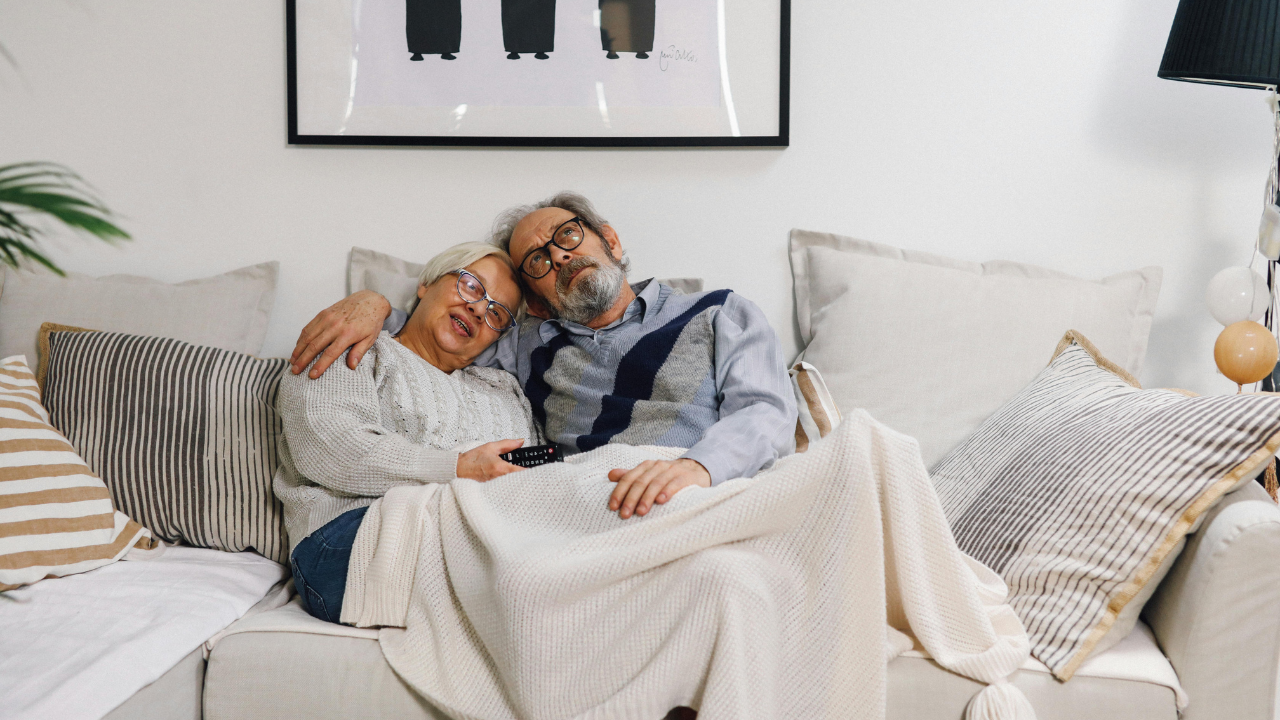How Weighted Blankets Help Seniors Sleep Better And Reduce Anxiety
How Weighted Blankets Help Seniors Sleep Better And Reduce Anxiety
Sleep is one of the body’s most essential healing processes, yet as people age, restful nights often become more elusive. Seniors frequently struggle with insomnia, anxiety, or restlessness that disrupts sleep cycles and leaves them fatigued during the day. Over time, lack of quality sleep can affect not only mood and energy but also memory, focus, and overall health. Among the many solutions being explored to help improve sleep in older adults, one simple yet powerful option has emerged: the weighted blanket.
While it may seem like an ordinary blanket, a weighted blanket provides more than warmth—it offers comfort rooted in science. Designed to apply gentle, even pressure across the body, these blankets mimic the soothing feeling of being held or embraced. For seniors, that sensation can calm the nervous system, reduce anxiety, and help the body ease naturally into deep, restorative rest.
The Science Behind Weighted Blankets
Weighted blankets use a concept known as deep pressure stimulation, a therapeutic technique that has been shown to calm the body and mind. This type of pressure gently activates the parasympathetic nervous system—the part of the brain responsible for relaxation and recovery. When this system is engaged, the body slows its heart rate, reduces cortisol levels, and releases feel-good hormones such as serotonin and dopamine.
These chemical shifts are the foundation of why weighted blankets are so effective for seniors. With age, the body’s ability to regulate stress hormones changes, often leading to higher baseline anxiety or nighttime agitation. The light, consistent pressure of a weighted blanket signals to the body that it is safe. This physical reassurance helps quiet racing thoughts, making it easier to drift into peaceful sleep.
Additionally, serotonin produced under the calming pressure converts to melatonin, the hormone responsible for regulating sleep cycles. For seniors whose natural melatonin levels may have decreased with age, this subtle physiological support can make a meaningful difference. The body, once calmed and supported, naturally follows its instinctive rhythm of rest.
Emotional Comfort and Anxiety Reduction
Beyond the science, there is something profoundly emotional about the comfort a weighted blanket brings. Many seniors experience anxiety that stems from health changes, isolation, or the loss of routine. The gentle embrace of a weighted blanket provides a sense of security and grounding, much like a reassuring hug. It’s a reminder of safety, care, and connection—all emotions that play a vital role in easing mental tension.
When anxiety decreases, the mind stops fighting against relaxation. Seniors who once spent hours tossing and turning begin to experience longer stretches of uninterrupted rest. The blanket’s soothing weight acts as both a physical and emotional anchor, keeping the body still while the mind settles into calm. This tranquility does more than aid sleep—it restores confidence in the body’s ability to find peace again.
The connection between physical comfort and emotional well-being cannot be understated. Weighted blankets offer a bridge between the two, turning bedtime from a source of frustration into a moment of healing.
Helping With Restlessness and Health Conditions
For many seniors, restlessness is not just mental but physical. Conditions such as restless leg syndrome, arthritis, or neuropathy can make nighttime movement painful and disruptive. The even distribution of pressure from a weighted blanket provides a gentle counterbalance to this discomfort. It signals to the body to remain still and reduces involuntary movements that can interrupt deep sleep.
Seniors with dementia or Parkinson’s disease may also benefit from weighted blankets. The tactile comfort can help reduce agitation and confusion, especially during the evening hours when anxiety tends to heighten. By creating a consistent, calming sensation, the blanket can help regulate nighttime behavior and provide reassurance in moments of disorientation.
Furthermore, for seniors dealing with chronic pain, the sense of stability from the blanket can be deeply soothing. It doesn’t eliminate pain, but it can help the body relax enough to fall asleep despite it. When the muscles and joints are less tense, the perception of pain often decreases, leading to more restful and restorative sleep.
The Transformative Impact of Deep, Restful Sleep
The benefits of sleep reach far beyond feeling rested. When seniors sleep deeply, the body repairs tissue, balances hormones, and strengthens the immune system. Cognitive function also improves, leading to sharper memory, better focus, and enhanced emotional resilience. The restorative power of sleep helps seniors greet each day with renewed energy and optimism.
Weighted blankets serve as a natural aid in achieving this balance. Unlike sleep medications, which can sometimes cause grogginess or dependence, these blankets offer a holistic approach. They work with the body’s natural processes rather than against them. The result is a gentle, sustainable way to enhance well-being night after night.
Families and caregivers often notice the change, too. Seniors who once appeared restless or fatigued begin to show calmer moods, steadier energy, and brighter engagement during the day. Sleep becomes less of a battle and more of a gift—one that supports both physical and emotional vitality.
Rediscovering Peaceful Nights
At their core, weighted blankets remind us of something deeply human: the power of comfort. For seniors, that comfort can mean more than just relaxation—it can mean safety, serenity, and renewal. In a world that often feels uncertain, especially in later years, the simple embrace of a weighted blanket can bring back the sense of calm that aging bodies and minds crave.
By easing anxiety, supporting deep sleep, and nurturing emotional security, weighted blankets help seniors reconnect with one of life’s most vital rhythms. Night by night, they restore the peace that fuels strength, healing, and joy—proving that sometimes the most profound comfort comes not from medicine, but from the gentle weight of care itself.

